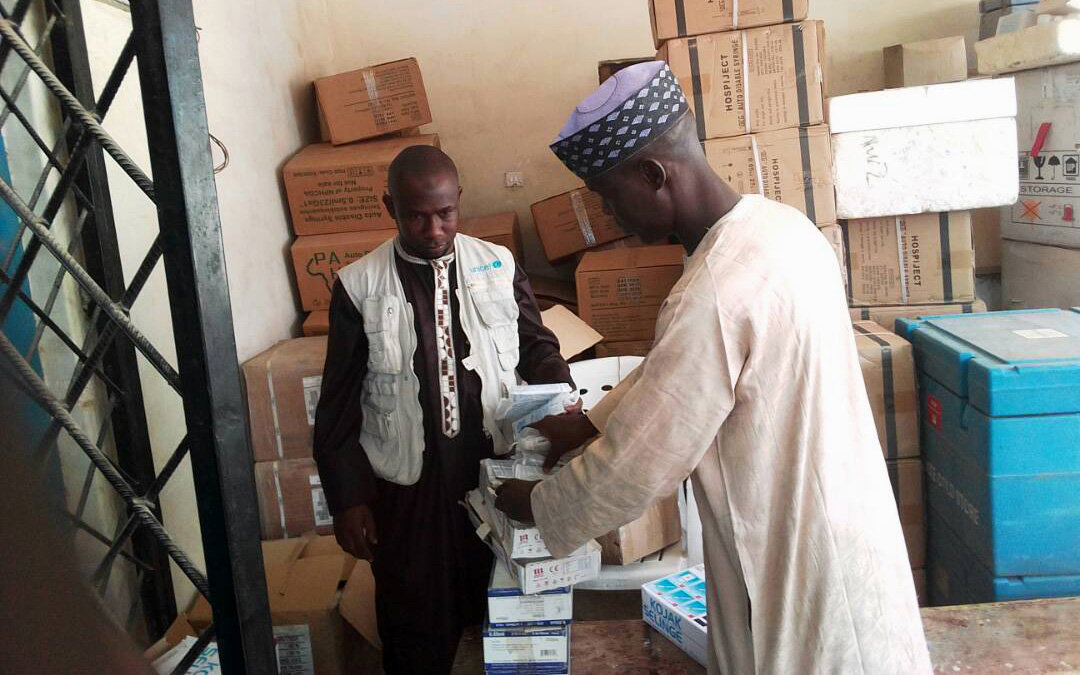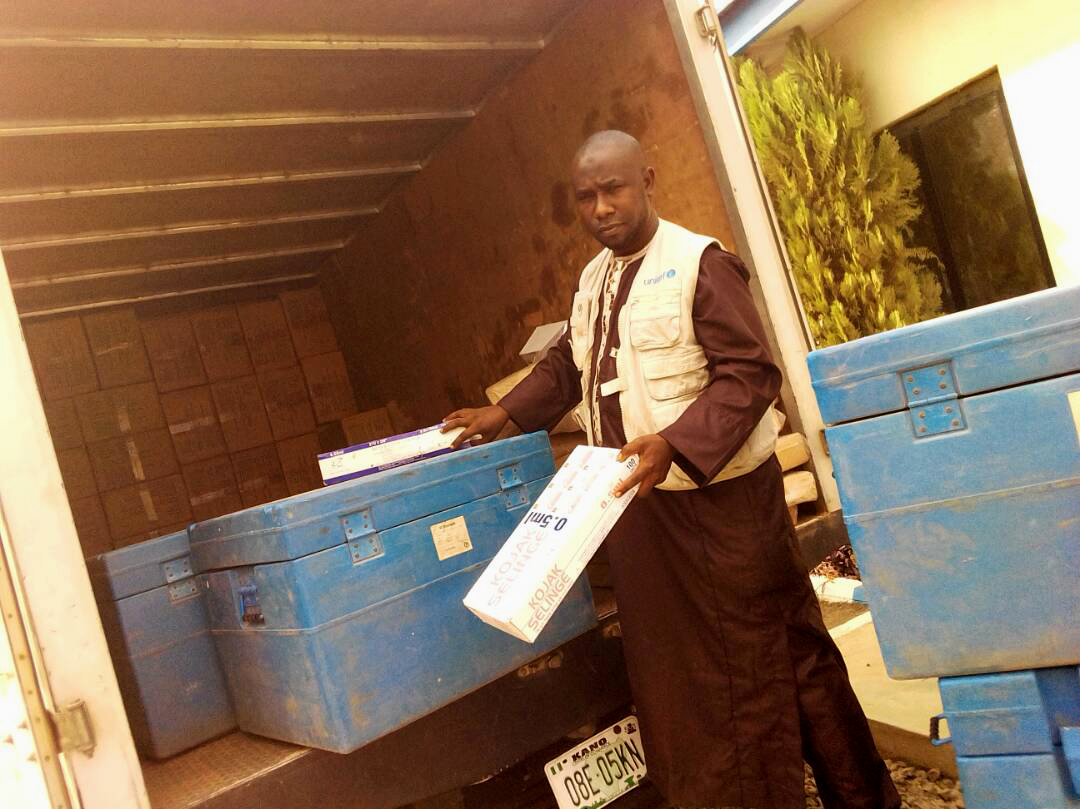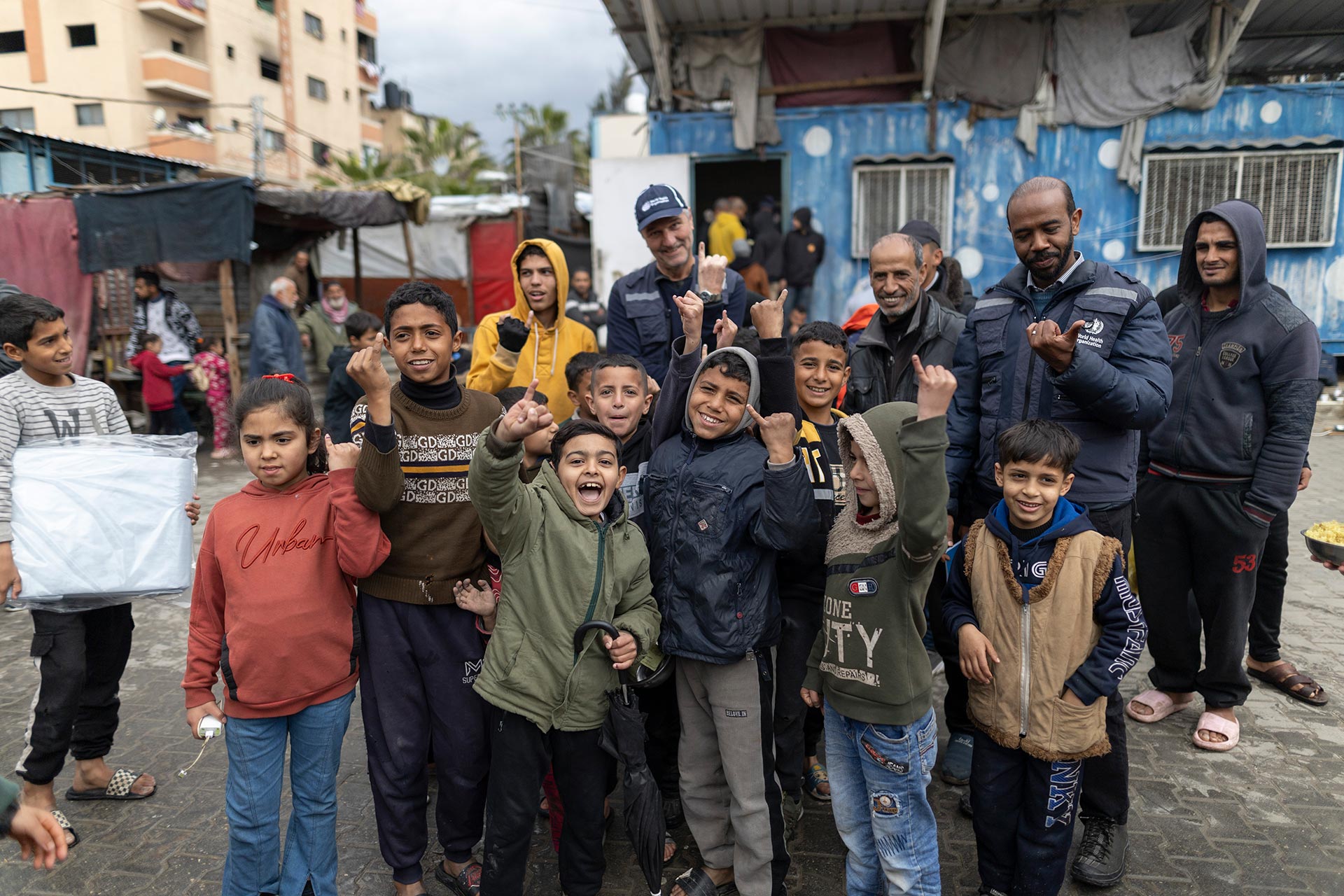
Forty-year-old Auta A. Kawu says the only thing predictable about working in the conflict-affected northeastern Nigerian State of Borno is its unpredictability.
“No two days in my week are alike,” he says.
As a Vaccine Security and Logistics facilitator, Auta is one of 44 specialists working with the Government, UNICEF and partners in Nigeria, who strive to ensure sufficient vaccine stock, appropriate distribution and overall accountability for vaccines in the country. Through careful management, Auta works to give every accessible child in Borno protection from vaccine-preventable diseases, including polio.
Describing a typical week in his life, he explains that if on Monday he is arranging for the vaccination of eligible children among a group of Nigerians returning back from neighbouring countries where they had fled due to fear of violence, by Tuesday he could be speaking with government personnel to find a way to safely send vaccines to security compromised areas. On Wednesday, he may find himself rushing extra vaccines to an internally displaced persons (IDP) camp, where more people have arrived than initially expected, whilst on Thursday you may find him trying to locate a cold chain technician to fix a fridge where the heat-sensitive polio vaccine must be stored.
Evidencing the energy and commitment required to work on the frontline of vaccination, Auta notes that the work never lets up. Despite an exhausting week, on a typical Friday, you might find him on the road again, travelling to a remote location where health workers have just been given access. When he gets there, he will help out once more – trying to ensure that vaccines are distributed as effectively as possible to maximize the number of children reached.
He recounts a recent story of reaching the reception area of an IDP camp in Dalori, which is located in a highly volatile area of the state. Arriving with 300 doses of oral polio vaccine, and 200 doses of measles vaccine, he was told that new arrivals were expected later that day. Many of the people coming had been under siege by non-state armed groups since 2016, and had taken the opportunity of improved security and mobility to flee to the nearest town. Very few of the young children arriving had ever been reached with vaccines.
With the screening of children eligible for measles and polio vaccines starting around 9 am, and plenty more children yet to arrive, it was quickly clear that the available doses would not be enough.
Springing into action, Auta notified the head of the security team accompanying him of the need to go to nearest health facility to bring additional doses. Once clearance was given, he rushed to Jere Local Government, a district nearby, to collect more vaccines.
In the meantime, however, there were sudden changes in the security environment. The return journey to Dalori was not cleared until late noon.
Luckily, giving up isn’t in Auta’s nature.
By the end of the day, he had successfully delivered 580 doses of oral polio vaccine and 460 doses of measles vaccines for the children in the camp, providing some of them with their first ever interaction with a health system.
The crucial role of Vaccine Security and Logistics facilitators like Auta cannot be over-emphasized. In addition to his central work, Auta also conducts advocacy visits to traditional and religious leaders and supports the planning and implementation of vaccination campaigns in inaccessible areas.
Vaccine facilitation may be unpredictable work, but Auta is secure on one thing. Thanks to the work of him, and thousands of other determined health workers, community mobilizers and with support from donors and partners including the Bill & Melinda Gates Foundation, the Government of Canada, the Dangote Foundation, the European Union, Gavi – The Vaccine Alliance, the Government of Germany, the Government of Japan, the Japan International Cooperation Agency (JICA), Rotary International, the US Centers for Disease Control and Prevention, the World Bank and others, Nigeria is steadily on its way to being declared polio-free.




